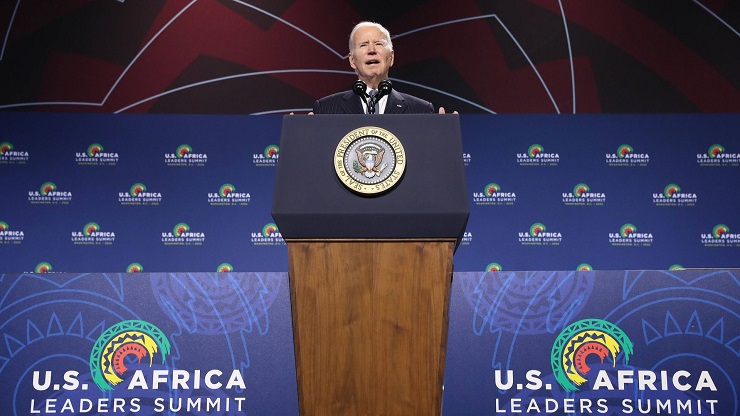Sometimes you just have to laugh. Because when it comes to Western media coverage of Russian-American tussles, clearly what’s good for the goose isn’t good for the gander. So, let’s put the shoe on the other foot, for a moment.
Imagine an alternative universe where US officials reacted with outrage on Saturday after the Russian Foreign Ministry announced it was closing the US Consulate in Vladivostok and giving staff only 48 hours’ notice to evacuate.
To compound matters, on Monday, Russia’s Federal Security Service (FSB) indicated its intention to carry out searches at the building on Tuesday afternoon. The raids would extend to trade missions in the capital, Moscow.
In Vladivostok, the operations won’t be restricted to US consular offices in the Far Eastern city, but will also take place at the apartments of staff who live in the building and who have diplomatic immunity. To perform those searches, Russian authorities have ordered those staff members and their families, including children and babies, to leave their homes for up to 12 hours.
“We are talking about an invasion in the consulate office and homes of diplomatic staff, who themselves are being ousted not to disturb FSB agents,” US State Department spokesperson Heather Ann Nauert complained. She pointed out that Washington was given just two days to close a consulate which serves the needs of “an area bigger than all of Europe.”
The Kremlin’s actions seriously violate international norms, including Moscow’s obligations in the Vienna declarations on diplomatic and consulate relations, Nauert said. These are “unprecedented measures on restricting the work” of the US diplomatic mission in Russia, she contested, “It is obvious that Russia is not interested in the development of relations between people.”
To make matters worse, Vladimir Putin’s spokesman confirmed his boss had personally ordered the measure. “This was a decision made by the president himself,” press secretary Dmitry Peskov told supporters. The US media was especially angered by Putin’s involvement, after he spent the past year promising to repair relations with Washington, repeatedly saying how “it’d be great to get along with America” and “we are going to have excellent relations.”
Mikhail Belov, a US expert, who has never been to America and can’t speak English, on news channel Rossiya 24 said: “We were all worried that Putin was going soft on the Americans when he started talking about making friends with them. The military industry will be relieved now he’s changing tack,” he said.
Real world woes
Obviously, the above is a joke. But the fact the US gave Russia two days last weekend to shut its San Francisco Consulate is no laughing matter. Nor were Saturday’s FBI raids on the building or the virtual mainstream media blackout of any dissenting views on the move. This would stand in stark contrast to the predictable reaction if Russia had even considered pulling a similar stunt.
Right now, the only conclusion to be drawn from Donald Trump’s choice is that Washington is actively looking for an escalation in its standoff with Moscow. Hoping Putin will take the bait and raise the stakes even further. Because how else can you interpret a move which would surely be hyped as an “act of war” if carried out by the Russian side?
For her part, Russian Foreign Ministry spokeswoman Maria Zakharova insists America is seriously violating international regulations. She also says the latest US decision “even exceeds” Barack Obama’s move to expel Russian envoys and confiscate Russian consular property in the dying days of his presidency.
Zakharova may well be correct, because the searches of two compounds in Washington on Saturday certainly seemed like an illegal takeover, particularly in light of how the US authorities lifted diplomatic immunity from the trade mission compound at short notice – something considered extremely abnormal in diplomatic circles, especially between major powers.
What’s next?
The main questions now are how will Moscow respond, and what do the US authorities hope to gain from their actions? Firstly, the Kremlin might not want to descend to the same level as their adversaries and may try to retake the moral high ground, as Putin did in response to Obama’s December orders. On the other hand, the Russians may feel enough is enough and prepare a similar clampdown on the Americans, perhaps by removing leisure facilities or conducting raids. Some well-placed sources have suggested a nuclear option where Moscow reduces its embassy personnel in the US to the bare minimum and forces their counterparts to do the same in Russia. A state-of-affairs which would see both sides restricted to their capital city properties only.
When it comes to working out what the Americans are really up to, the answer seems clear now. The White House wants to antagonize the Kremlin to such an extent that something like the extreme notion of a large-scale shutdown of bilateral interaction is implemented. In this event, the State Department may feel it gains by making Russia look like the petulant partner. The problem with this plan lies in how uncharacteristic it would be for Putin, and his foreign minister, Sergei Lavrov, to take the bait.
The other confusing issue is Donald Trump’s behavior. He came to office promising a vast improvement in US-Russian relations. Thus, either he’s changed his mind, or he’s lost control of his own apparatchiks, and has been forced to surrender to their demands. Either way, America is now a dangerous rival, because there seems to be no longer any consistency in its conduct. And, barring impeachment or resignation, there’s still almost three and a half years of the Trump Presidency ahead. So, brace yourself, because things could get a lot worse.
Source Article from https://www.sott.net/article/361040-Is-Washington-looking-for-an-escalation-in-diplomatic-standoff-with-Russia
Related posts:
Views: 0
 RSS Feed
RSS Feed

















 September 4th, 2017
September 4th, 2017  Awake Goy
Awake Goy 




 Posted in
Posted in  Tags:
Tags: 
















